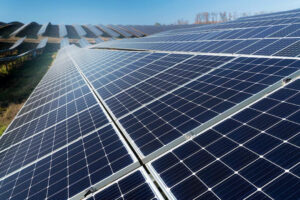ELECTRICITY RATES may decline to below 50 centavos per kilowatt-hour (kWh) by 2050 as new renewable energy (RE) projects under the government’s Green Energy Auction Program (GEAP) come online, the Department of Energy (DoE) said.
At a forum hosted by the Institute for Climate and Sustainable Cities on Wednesday, Energy Undersecretary Rowena Cristina L. Guevara said the DoE asked the spot market operator to simulate electricity prices through 2050 based on the implementation of projects under GEAP.
“This is the number that we got: from 2026, Luzon, for example, on average will be P4.95 per kWh. By 2050, it will be P0.28 per kWh,” Ms. Guevara said.
In the Visayas, prices are projected to fall from around P5.28 per kWh in 2026 to P0.48 per kWh by 2050. In Mindanao, electricity rates may drop from P4.06 per kWh in 2026 to P0.36 per kWh by mid-century.
Ms. Guevara cited the United Kingdom’s experience with offshore wind development as an example of how prices for emerging technologies eventually decline.
“The price per megawatt-hour was £120. In four years’ time, that £120, on track for difference, went down to £42 in just four years’ time,” she said.
“So, the initial investment for new technologies might sound very high, but eventually it goes down. And we already asked IEMOP (Independent Electricity Market Operator of the Philippines) to do the simulation because we want to make sure that our consumers are protected,” Ms. Guevara added.
IEMOP operates the Wholesale Electricity Spot Market, where distribution utilities and other energy players procure additional power when their contracted supply is insufficient.
The DoE has launched five rounds of GEAP, which are expected to deliver more than 25,000 megawatts (MW) of capacity. Nearly all RE project awards under GEAP Round 3 have been accepted, representing a combined capacity of over 6,600 MW through 2035.
In a media release on Wednesday, the DoE said winning bidders confirmed their acceptance by submitting written confirmations.
Among those that accepted the award is Pan Pacific Renewable Power Phils. Corp., which submitted the largest total bid under GEAP-3 with two impounding hydropower projects totaling 2,300 MW in Apayao.
Coheco Badeo Corp. accepted the award for its 500-MW Kibungan Pumped-Storage Hydropower Project in Benguet.
Olympia Violago Water and Power, Inc. and Ahunan Power, Inc., both affiliates of Razon-led Prime Infrastructure Capital, Inc., accepted the award for their two pumped-storage projects in Rizal with a combined capacity of 2,000 MW.
San Roque Hydropower, Inc., an affiliate of the San Miguel Group, also accepted the award for three pumped-storage projects in Rizal and Laguna with a combined capacity of 1,850 MW.
The Energy Development Corp. (EDC) and its affiliate, Bac-Man Geothermal, Inc., confirmed their acceptance of the award for two geothermal facilities: the 5.645-MW Bago Binary Geothermal Power Plant – Unit 1 in Bago City, Negros Occidental, and the 21.573-MW Tanawon Geothermal Power Plant – Unit 1 in Sorsogon City, Sorsogon.
However, EDC’s 3.669-MW Mindanao 3 Binary Geothermal Power Plant Expansion Project Phase 3 – Unit 1, which was among the winning bids, was not included in the list of confirmed projects.
The GEAP aims to promote RE as a primary energy source through competitive selection. It supports the government’s target of increasing the RE share in the energy mix to 35% by 2030 and 50% by 2040. — Sheldeen Joy Talavera
